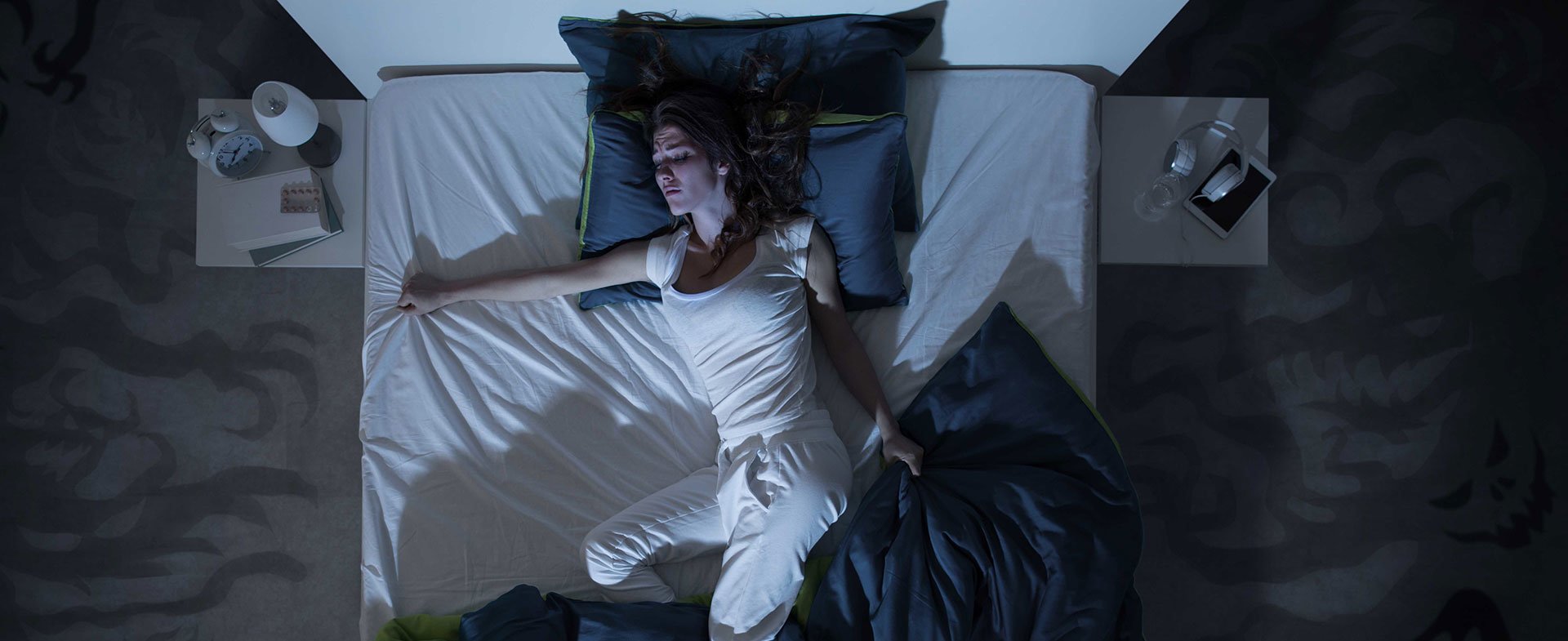Have you ever had a weird dream where you felt awake but couldn’t move? Maybe you’ve dreamt of frightening hallucinations or intruders in your room. These sorts of dreams can leave you feeling vulnerable or confused.
If you have had a dream like this before, you may have experienced sleep paralysis. According to Kenneth Moss, M.D., a sleep specialist with Henry Ford Health, sleep paralysis it is the sensation of being paralyzed that occurs while you sleep. And don’t worry – it can happen to anyone. People have reported feeling different things when experiencing an episode. For most, it is just the inability to move during a dream. But some have reported having nightmares or feeling helpless.
Whether you have experienced sleep paralysis or not, here are some facts that help explain this mysterious phenomenon:
It only occurs at certain times of the night. Sleep paralysis happens during transition points in your sleep cycle. This means it can happen right as you are falling asleep or when you are first waking up. Your mind is simply making the transition to dreaming faster than your body. The sensation only lasts a few seconds to a minute. In a dream, the sensation of paralysis may seem to last much longer.
If you do experience it, don’t panic. Not being able to move around while in a dream can be scary. Luckily, the sensation of paralysis will wear off. If you are worried about past sleep paralysis episodes you have had, don’t. “Sleep paralysis is not a sign of mental disorders,” Moss says. “It is common – most people will experience it at least once in their lifetime.”
It can happen to anyone. “Sleep paralysis occurs at all ages, but is more common for people with irregular sleep schedules,” says Moss. High school or college students and people on-call for a job (such as nurses, doctors, and firefighters) are more likely to experience sleep paralysis due to sleep deprivation.
There isn’t a cure. “Sleep paralysis is something that usually goes away with time,” Moss says. “In very rare cases, it may be an indicator of an underlying condition – such as narcolepsy.” In extreme cases, a doctor may prescribe a sleep aid or other medication to help you get better quality sleep.
The best way to avoid sleep paralysis is to get a better night’s rest and make sleep a priority. There are several steps you can take for getting better sleep or if your job affects your sleep schedule. This may include eliminating electronics before bed or making your bedroom more optimal for restful sleep.
The idea of sleep paralysis doesn’t have to be scary or mysterious. Being informed can help you know feel reassured if you experience an episode in the future.
To find a doctor or sleep specialist at Henry Ford, visit henryford.com or call 1-800-HENRYFORD (436-7936).
Dr. Kenneth Moss sees patients at Henry Ford Medical Center – Columbus in Novi and Henry Ford Medical Center – New Center One in Detroit.



